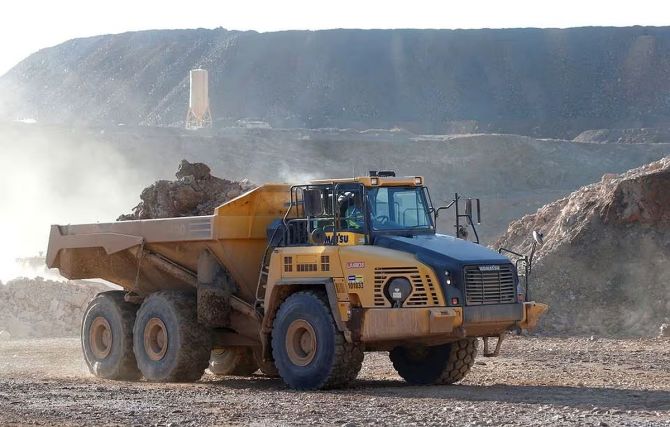For the country’s maiden offshore mineral mining auction, the Centre is planning to relax the rules on the number of chances for bidding.

Under the newly announced draft Offshore Areas Mineral (Auction) Rules and Offshore Areas (Existence of Mineral Resources) Rules, the ministry of mines is planning to offer three chances to potential bidders in its forthcoming inaugural offshore mining auction.
If a single bid is not received during the second attempt, the plan is to initiate a new round of bidding for the third time.
In the third attempt, the Centre will also have the authority to initiate the auction process afresh, termed as ‘de novo.’
It can introduce updated terms and conditions, and a reserve price.
The ministry of mines has also restricted the bid security for ‘production lease’ to Rs 10 crore, contrasting with the Rs 50 crore limit for onshore auctions.
Moreover, for ‘composite licence’, the bid security is set at Rs 5 lakh per standard block, significantly lower than the previous bid security of Rs 50 lakh in onshore auctions.
The intention behind the proposed rules is to enhance the attractiveness of the deal for potential bidders eyeing the anticipated 10-15 blocks.
The auction is slated for the first quarter of 2024.
These draft rules came around four months after the amendment of the Offshore Areas Mineral (Development and Regulation) Act, 2002, on August 17.
Furthermore, the rules strictly prohibit any affiliate associated with a bidder from submitting bids in the same auction where the bidder has already placed a bid.
To enforce compliance, any bids found to violate this rule will face rejection.
According to the draft rules, the bidder is required to remit monthly royalties and fixed rent to the government, along with contributions to both the Offshore Areas Mineral Trust and a specified account of the central government for their commitment to the International Seabed Authority.
An offshore ‘production lease’ will be awarded for an area that has undergone general exploration (G2) to establish an indicated mineral resource and preliminary exploration (G3) for specific minerals such as construction-grade silica sand, lime mud, or calcareous mud. ‘Composite licence’ will be granted for areas where reconnaissance survey (G4) has been conducted.
According to the United Nations Framework for Classification of Resources, the exploration of minerals is divided into four stages — G4 (reconnaissance), G3 (prospecting), G2 (general exploration), and G1 (detailed exploration).
The G4 stage entails estimating quantity with grade through regional assessments and limited subsurface sampling, resulting in low-confidence estimates.
Progressing beyond reconnaissance, the G3 stage maintains low-confidence estimates.
The G2 stage indicates a more comprehensive assessment with a moderate level of confidence in estimating quantity with grade.
At the G1 level, the most advanced stage, high-confidence estimates are derived from in-depth investigations, extensive sampling, and direct analysis.
According to the draft rules and the current exploration status, India’s seabed harbours economic minerals broadly classified into five categories.
They are construction-grade silica sand, non-construction grade calcareous sand, calcareous mud (also known as lime mud), phosphatic sediments, and deep-sea minerals, encompassing rare earth elements, hydrothermal minerals, iron manganese crusts, and nodules.
The upcoming auction positions India as an early entrant into offshore mineral mining.
While the extraction of sand and gravel from offshore areas is a common practice in nations like the Netherlands, Belgium, Denmark, the UK, the US, China, and others, it typically occurs within a short distance from the coastline.
In contrast, deep-sea mining at a commercial scale has not commenced, according to a US Geological Survey report published in June 2022.
However, several countries such as Australia, Canada, China, Japan, South Korea, Singapore, and Germany are actively involved in exploration and development efforts for deep-sea resources.
Embarking on its offshore expedition, India is poised to explore its vast exclusive economic zone (EEZ), covering around 2.37 million square kilometres (915,057 square miles).
This zone stretches 200 nautical miles (370.4 kilometres) from the baseline of India’s territorial waters.











